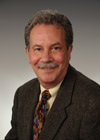Studying global power in a 21st century context
|
At a time when traditional college history courses focused on diplomatic, economic, military and constitutional history are on the decline, Temple University’s Center for the Study of Force and Diplomacy (CENFAD) is growing, due in part to its ability to evolve and tackle contemporary issues. And this month, the center was awarded a grant of $225,000 from Roger Hertog, president of The Hertog Foundation. The award places Temple in prestigious company alongside just four other recipient institutions: Columbia University, Duke University, and the University of Wisconsin. |
|
|
The recipient programs were selected based on their ability to initiate or expand “grand strategy” courses on the craft of national policy making. The goal is to provide top students with a sense of what it feels like to make political decisions in real time and to help create the next generation of American leaders. “Grand strategy is a way of thinking about power, in particular the multiple sources of power deployed by states on a global scale. The allied victory in WWII exemplifies grand strategic thinking in practice. The fluidity of the contemporary environment, and challenges posed by non-state actors, only adds to the salience of the topic,” said Richard Immerman, The Edward J. Buthusiem Family Distinguished Faculty Fellow in History and Marvin Wachman Director of the Center for the Study of Force and Diplomacy. At Temple, the award will be used to mount a collaborative effort between CENFAD and the Foreign Policy Research Institute, which has offices in Philadelphia. A consortium in grand strategy will bring together 30 leading scholars and practitioners six times a year to discuss new research and ideas, while Temple undergraduates and graduate students immerse themselves in the classic texts and develop strategies to address contemporary security problems. |
|
|
The program will be directed by Immerman and Temple history professor and chair William Hitchcock. Hitchcock’s book about how liberation felt to ordinary Europeans during WWII, “The Bitter Road to Freedom,” was a 2009 Pulitzer Prize finalist. From CENFAD’s inception in 1993, the center’s faculty experts have worked to integrate the disciplines of diplomatic history, international history, and military history and to explore the different variables that drive international behavior, culture, economics and ideology. According to Hitchcock, today’s hot-button issues — terrorism, civilian casualties, global warming, infectious diseases, population growth, piracy, intellectual property — don’t neatly fit into a box. And neither do today’s college courses. “We are witnessing the natural evolution of a field,” he said. |
|

